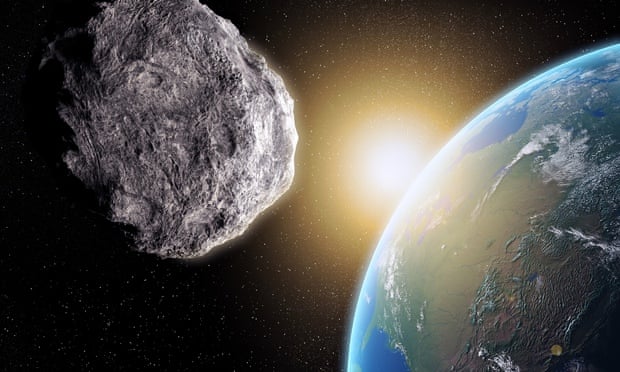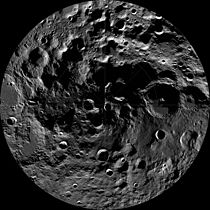 ©http://ottersandsciencenews.blogspot.ca/. Unauthorized duplication of this blog's material is prohibited. Excerpts and links may be used, provided that full credit and link is given to Otters and Science News Blogspot. Link to this post: http://ottersandsciencenews.blogspot.ca/2015/05/book-bits-seveneves-novel-about-blowing.html - Thank you for visiting my blog.
©http://ottersandsciencenews.blogspot.ca/. Unauthorized duplication of this blog's material is prohibited. Excerpts and links may be used, provided that full credit and link is given to Otters and Science News Blogspot. Link to this post: http://ottersandsciencenews.blogspot.ca/2015/05/book-bits-seveneves-novel-about-blowing.html - Thank you for visiting my blog.
~~~~~~~~~~~~~~~~~~~~~~~~~~~~~~~~~~~~~~

Chunks of moon destroy the Earth in Seveneaves. Photograph: Alamy
Although I haven't read the just-released Neil Stephenson's book Seveneaves, the plot of his novel is intriguing enough to speculate on what would Earth be without its Moon - This without any modern apocalyptic disaster that would blow it up into pieces. Just the physics of an Earth without the Moon.
So, after reading an outline of the plot, read what real scientists have to say about what our planet would be like if there was no Moon, and the effect on climate, geology, tides, and so on.
On this page:
- The fiction: Excerpts of reviews of Seveneaves
- The science: What would Earth be like if there was no Moon.
- Link to article on what would happen if the Earth stopped turning.
THE FICTION:
Steven Poole of the Guardian writes:
A media-friendly astronomer, Doc Dubois, calculates that this rate of collision will increase exponentially. More and more chunks causing more and more collisions causing more and more chunks.
In two years’ time, a huge storm of moon debris will rain down as meteorites on the Earth. Dubois christens this the “Hard Rain”, and it is even worse than the one Bob Dylan foresaw. All life on the planet will be extinguished. And then the Hard Rain will continue for millennia.
Continue reading, including what science has to say
Jason Sheehan of NPR writes:
This is a Neal Stephenson book (a modern Stephenson book, meaning post-Snow Crash/Diamond Age and, therefore, kind of post-fun) which means that the world as presented, moon or no moon, isn't really the same as ours anyway.
It's a drier world, a rigidly mapped and exhaustively cataloged one where the first 565 pages read less like the script for an awesome moon-wrecking Michael Bay blow-em-up than a primer on global disaster preparedness.
Which isn't to say it's dull, it's just ... different.
The experience of reading a modern Stephenson novel is like going out drinking with 20 or 30 of the smartest people on earth, and them all deciding to play that game where someone starts a story, tells one sentence of it, ends with a conjunction, and passes it along to the next person. Once upon a time, the moon blew up, and then ...
Sources
http://www.theguardian.com/books/2015/may/13/seveneves-by-neal-stephenson-disaster-novel
http://www.npr.org/2015/05/20/407079232/seveneves-blows-up-the-moon-and-thats-just-the-beginning
THE SCIENCE

Charlotte Observer - 2013
 WHAT WOULD HAPPEN IF THE EARTH STOPPED TURNING?
WHAT WOULD HAPPEN IF THE EARTH STOPPED TURNING?
http://ottersandsciencenews.blogspot.ca/2014/06/what-would-happen-if-earth-stopped.html
*******************************************************************************
This is obviously quite bad news. Luckily, however, we have people in space: a plan is hatched to send up more people and equipment to enlarge the International Space Station and turn it into an ark, where a tiny proportion of humanity can continue to live.
The suspense of the story lies in exactly how the plan will be accomplished by the deadline, and who will survive. It involves a lot of politicking on Earth, and a lot of clever manoeuvring of robots, comet cores and the like up in orbit.
There is an enjoyable strain of nerdy distrust of officialdom, and we learn much about ballistic coefficients and orbital mechanics. There are amusing asides about how living in the End Times is affecting global culture: “The home improvement market had gone bust.”
Structure of the Moon
Jason Sheehan of NPR writes:
This is a Neal Stephenson book (a modern Stephenson book, meaning post-Snow Crash/Diamond Age and, therefore, kind of post-fun) which means that the world as presented, moon or no moon, isn't really the same as ours anyway.
It's a drier world, a rigidly mapped and exhaustively cataloged one where the first 565 pages read less like the script for an awesome moon-wrecking Michael Bay blow-em-up than a primer on global disaster preparedness.
| Neil Stephenson |
The experience of reading a modern Stephenson novel is like going out drinking with 20 or 30 of the smartest people on earth, and them all deciding to play that game where someone starts a story, tells one sentence of it, ends with a conjunction, and passes it along to the next person. Once upon a time, the moon blew up, and then ...
His science is merciless. Hard like diamonds, and murderous in the extreme.
Where most hard SF really means "a bunch of ray guns, then some talk about wormholes," he plays with hard ballistics, hard genetics, hard sociology.
And what thrills me, is that he makes it interesting. That he makes life and death in space about actual life and death — about the million things that will kill you and the two or three things that really smart people can do to stay alive.
True, with Seveneves he has basically sent a bunch of on-the-spectrum superheroes into space — emotionally disengaged brainiacs on whose shoulders rests the responsibility of actually saving the entire human race — but he has done so in service of a story that requires precisely that. Big brains and hard hearts to handle problems with no mushy solutions.
And by the end, even I, a soft-SF fanboy to the end, am convinced that there's no one else I'd rather send.
http://www.theguardian.com/books/2015/may/13/seveneves-by-neal-stephenson-disaster-novel
http://www.npr.org/2015/05/20/407079232/seveneves-blows-up-the-moon-and-thats-just-the-beginning
THE SCIENCE
WHAT WOULD EARTH BE LIKE
WITHOUT THE MOON?
Illustration above: The libration of the Moon over a single lunar month. Also visible is the slight variation in the moon's visual size from Earth.
The following is an article posted on this blog
on February 24, 2013:
Would there still be life as we know it? Could humans have developed under those conditions? If so, what would we look like? Would there still be romance if we looked "short, squat and stout," and without moonlight to inspire us?
I was just reading HERE ON EARTH by Tim Flannery. On page 41 he tells how Earth was struck by a body the size of Mars early in its history, "liquefying it and ejecting from it a mass destined to become the Moon. The liquefied reminder then began to differentiate into a metallic core, a silicate mantle, and a thin crust".
The question is, what kind of planet would Earth be if it had never been struck by a giant object losing mass that became the Moon. Earth would be bigger, of course, but what else would be different?
Life on Earth would be much different without the moon. In fact, it’s safe to say that the large diversity of life we find on Earth wouldn’t exist at all. Without the stabilizing effects of the moon, life on Earth would exist only in small, compact niches.
Life on Earth, without the moon, if it existed at all, would be confined to a narrow band along the equator.
All the plants would be short, deeply rooted and ground-hugging. And any land animal would be short, squat and stout. Birds and any flying insects would be impossible. Ice ages could potentially be 10 times as bad as they have been.

The monthly changes of angle between the direction of illumination by the Sun and viewing from Earth, and the phases of the Moon that result
Charlotte Observer - 2013
Without the moon, Earth would spin faster, the day would be shorter, and the Coriolis force (which causes moving objects to be deflected to the right in the Northern Hemisphere and to the left in the Southern Hemisphere, due to Earth’s spin) would be much stronger.
This would lead to air circulations in the atmosphere that might look more like Jupiter than what we see on Earth today – multiple east-west jet streams and likely more than one big gyre in the oceans. For example, the Gulf Stream would leave our coast far south of Cape Hatteras.
Those circulations might be less effective at moving heat from the tropics to high latitudes, leading to warmer tropics and colder polar regions.
Without the moon, tides would be weaker, affecting the tidal ecosystems for which tidal mixing and flow are important sources of energy. But this seems more like a quantitative effect, not the huge qualitative effect we’d get from a much faster spin. More subtle effects would be on organisms that depend on moonlight and that synchronize their nocturnal activities to the phases of the moon.
 |
| Moon's South Pole |
 |
| Moon's North Pole |
On a daily basis, we would still have large breakers on the continental west coasts because of the rotation speed of the Earth, storms out at sea, and sloping beaches.
We would still have high and low tides due to the Sun, but these would be half as tall as the lunar high and low tides. There would, however, be no Neap or Spring Tides which occur when the Sun and Moon are on opposite sides of the Earth, or on the same side.
We would still have high and low tides due to the Sun, but these would be half as tall as the lunar high and low tides. There would, however, be no Neap or Spring Tides which occur when the Sun and Moon are on opposite sides of the Earth, or on the same side.
No impacts on the issue of life on the Earth because, if ocean tides were important in getting life started by, for example, mixing up the so-called 'primordial soup', the solar tides ought to have been more than adequate to have done the same thing 3.5 - 4.0 billion years ago. It is possible that the Earth would have been slightly less geologically active.
Source
http://ottersandsciencenews.blogspot.ca/2013/02/questions-earth-without-moon-what-would.html
~~~~~~~~~~~~~~~~~~~~~~~~~
Also of interest:
http://ottersandsciencenews.blogspot.ca/2014/06/what-would-happen-if-earth-stopped.html
*******************************************************************************



No comments:
Post a Comment
Thank you for visiting my blog. Your comments are always appreciated, but please do not include links.